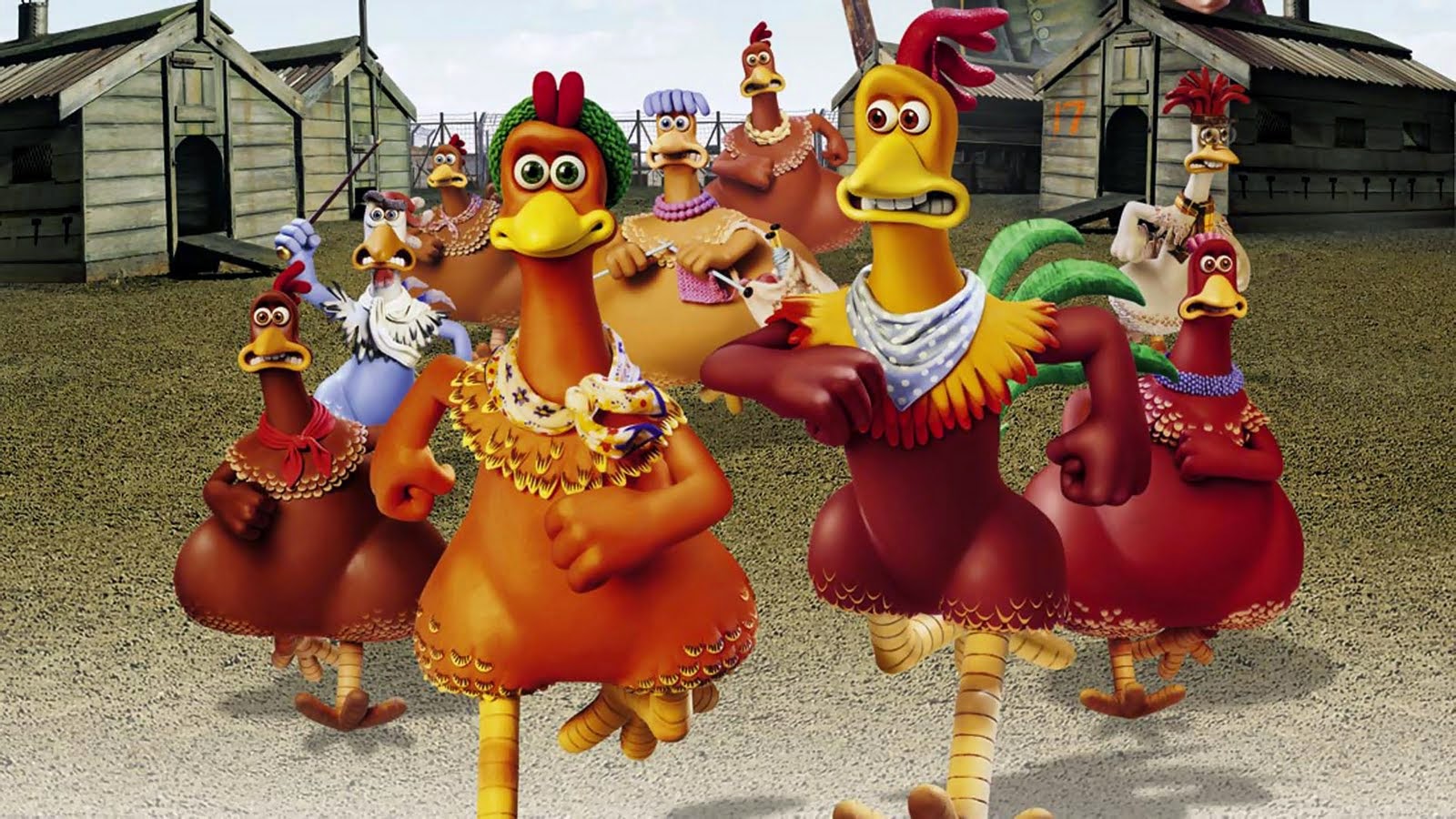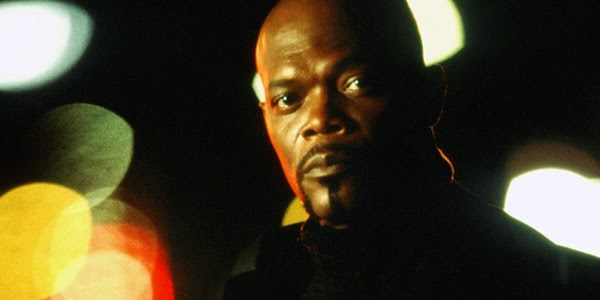“Boys And Girls” has characters bursting with energy so intense and vibrant that you wish there was a more interesting plot to keep them occupied. At a point when movie personas are gauzy rip-offs of smarter characters from older pictures, their arrival onto the screen is met with warm embracement, especially from those who (like myself) are tired of the incessant idiotic depiction of America’s youth through the eyes of actors who aren’t even teenagers to begin with. Like “American Pie,” here is a radiant display of the sauciness, sophistication and intelligence of students, and how their skills can literally wreak havoc in the lives of those around them.
Saturday, July 29, 2000
Chicken Run / ***1/2 (2000)
The claymation technique that is utilized in Dreamworks’ charming “Chicken Run” is one of the many masterful movie art forms that has become lost amongst the upheaval of more mainstream (and usually less fulfilling) approaches, and the one format of movie animation in which the primitive realm it is cemented to still has a tendency of enticing audiences more than evolved ones. After computers took over the field in the mid 1980s, movie animation is consistently trying to push the envelope, introducing spectacular techniques so frequently that there is little opportunity to give them a sense of diversity.
Disney's The Kid / *** (2000)
“Disney’s The Kid” is the type of movie that walks thin lines dividing ripe emotion with cheap sentiment, but is so confident in its own execution that none of us really mind. Self-assurance is usually the first positive notch towards bandaging the infectious emotional wounds that plague productions like this, but in the recent years, consistent contrivance has turned most melodramas into a display of groans and complaints from the moviegoers who endure them. You can usually tell the difference between the two; a film aiming for some sort of plausibility in its sentiment will anchor the grievances and/or happy occasions on a significant plot structure without over-the-top complexion. A latter example would be a film that devotes its entire time to unleashing endless tear-jerker situations back-to-back without any dramatic or narrative purpose (other than to coerce audiences into pulling out tissues).
Me, Myself & Irene / * (2000)
“Me, Myself & Irene” is exactly what happens when filmmakers stake into new territory, lose sensible navigation, fail to realize their mistake and repeat the process for lack of better enterprises. After their lame and pretentious effort that is “Outside Providence,” one might have hoped that the brothers Farrelly, famous for their hits like “Dumb And Dumber” and “There’s Something About Mary,” would retrace the steps that gave them success in the first place for their next creative endeavor. That, needless to say, might have been the last thing on their minds, especially since the film features the comedic return of Jim Carrey, whom one reader of mine says “can make any screenplay worth the ticket price.” Little did he fail to realize that there is material sometimes so bad that no one can redeem its frequent inadequacies.
The Patriot / *1/2 (2000)
“The Patriot” is a blood-soaked, incessantly gory clutter of a movie that tries hard to pass itself off as a noble war epic seethed in family values and national honor, and then expects us not to distinguish its endless contradictions or vast narrative shortcomings. Too bad those aren’t even the extents of the problems. Directed and produced by the same pair who masterminded the summer garbage “Independence Day” and “Godzilla” a few years back, this loathsome, sour and often confusing endeavor sponges off the formulas of half-a-dozen other war films but exchanges the realistic intensity with gratuitous and over-exercised bloodshed. The fact that it uses an event like the Revolutionary war to serve its own warped propaganda gives an extra twist to the knife in our backsides.
The Perfect Storm / ** (2000)
Wolfgang Petersen’s “The Perfect Storm” is the kind of disaster picture in which ships tossing around through mile-high water waves is inclined to so much observation that the narrative drowns out long before any climax is attained. And this is sad, to a certain extent, because the infamous genre revolved around natural disasters can at times dish out rather successful endeavors that combine both mind-numbing sequences of utter catastrophe with heartfelt human emotion. “Disaster dramas” are what they should be called: the few that lay waste to creation, but are courageous enough to peer into the eyes of a victim and ask, “how does this affect us as human beings?” Most of them, like “Volcano,” are too concerned with loud sound and visual effects to stand back and admire the human spirit of the stories.
Scary Movie / ** (2000)
In the opening moments of “Scary Movie,” Carmen Electra is taunted by a man dressed in a cloak and ghost mask, whose voice is disguised so well that she doesn’t know who it is when he asks what her name is. Why does he wish to know her name? “Scream” taught us in 1996 that killers like to know exactly who they are looking at, but this particular man is not checking her out from a distance; rather, he is gloating over her latest spread in Playboy. Suddenly a chase breaks out, and the murderer plunges a knife into her chest, pulling out a breast implant upon release of the weapon. These early scenes have such positive energy between victim and murderer that we suddenly see glimmers of hope, as if, at long last, the dead and buried spoof genre has found its shovel. But alas, like all of its ancestors, “Scary Movie” is a comedy stumbling around on stilts, a film so dreary, shapeless and juvenile that the laughs are low and attention spans become disconnected before the first half hour is through.
Shaft / ** (2000)
Of the endless chain of flicks that came out of cinema’s “blaxploitation” era in the early 1970s, none have quite gone down as revered and well-respected as “Shaft” from 1971. Slick, hip and stylistic, with broad strokes of energy around the edges (particularly in the unforgettable title them from Isaac Hayes), Gordon Parks’s film about a cop who played by no rules but his own was an early example of how action movies could be given an array of freedom without technology or loads of dough clogging production values. It was hardly a classic, especially given its rather inane narrative, but acceptable all the same; not many movies, after all, came out of the blaxploitation craze that were not mulled down by some kind of displeasing point of view (not that I’m one to speak wholeheartedly about the genre’s scope given my limited wisdom on it).
X-Men / ***1/2 (2000)
The genetic evolution of the human being, as we are told at the beginning of Bryan Singer’s “X-Men,” takes a gigantic leap every hundred centuries or so, creating a rift between those affected with the transformation and those who remain undisturbed by it. At the end of the 20th century, such developments have unleashed a society of superhumans: people who exhibit altered physical or mental attributes which allow them to attain capacities that no standard being could hope to achieve. Any person who has fallen victim to this transformation should be grateful to have been given this chance, but since the broad scope of humanity refuses to accept them because of their differences, these traits are actually regarded as punishments. In such a society, the word “mutant,” which they are referred to as, becomes synonymous with “freak.”
Subscribe to:
Posts (Atom)









